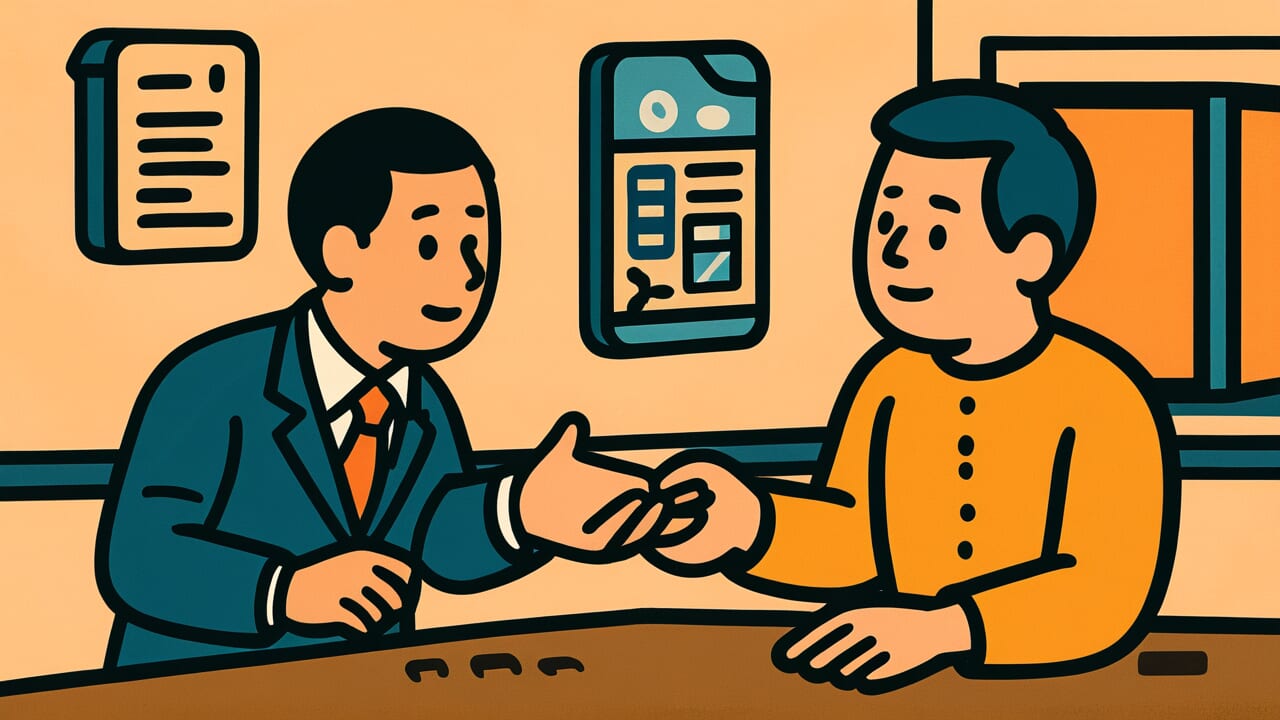How to Read “Advice is cheap, when given freely”
Advice is cheap, when given freely
ad-VICE is CHEAP, when GIV-en FREE-ly
All words use standard pronunciation.
Meaning of “Advice is cheap, when given freely”
Simply put, this proverb means that advice offered without being asked is often worth exactly what you paid for it – nothing.
The saying points out something we’ve all experienced. When people give advice without being asked, they usually haven’t thought deeply about your situation. They might not understand your real problems or what you’ve already tried. Free advice often comes quickly and easily, without much consideration behind it.
We use this wisdom when dealing with well-meaning friends, family, or strangers who love to share their opinions. Someone might tell you how to fix your relationship after hearing one complaint. A coworker might suggest career changes based on a casual conversation. These people mean well, but their quick solutions rarely fit your complex reality.
What makes this proverb interesting is how it connects cost with value. When someone pays for professional advice, both people take it seriously. The advisor thinks carefully before speaking. The person receiving advice listens more closely because they invested in it. Free advice lacks this mutual investment, making it less valuable to everyone involved.
Origin and Etymology
The exact origin of this specific wording is unknown, though the concept appears in various forms throughout English literature. Similar ideas about the relationship between cost and value have existed for centuries. The phrase likely developed during times when formal consultation with experts required payment.
This type of saying became popular when communities were smaller and everyone felt entitled to share opinions about neighbors’ business. People noticed that unsolicited advice rarely helped and often created more problems. The wisdom emerged from observing how differently people behaved when money was involved versus casual conversation.
The proverb spread through everyday speech rather than formal writing. It reflected a growing understanding of professional expertise and the value of thoughtful consultation. As societies became more complex, people began distinguishing between casual opinions and serious counsel. The saying helped people recognize this important difference in their daily interactions.
Interesting Facts
The word “advice” comes from Old French “avis,” meaning opinion or view. Interestingly, “advice” is a noun while “advise” is the verb, a distinction that often confuses writers. The phrase uses “cheap” in both its literal sense of low cost and figurative sense of low quality, showing how economic and quality meanings often overlap in English expressions.
Usage Examples
- Coach to assistant: “Everyone tells him how to improve but he won’t practice – Advice is cheap, when given freely.”
- Parent to spouse: “She asks for help constantly but ignores every suggestion we make – Advice is cheap, when given freely.”
Universal Wisdom
This proverb reveals a fundamental truth about human psychology and the nature of value itself. We naturally assign worth based on scarcity and investment, not just usefulness. When advice costs nothing to give and nothing to receive, our brains treat it as disposable. This isn’t shallow thinking – it reflects deep survival instincts about resource allocation and attention management.
The wisdom also exposes our complicated relationship with expertise and authority. Throughout human history, valuable knowledge came from experience, often gained through significant cost or risk. Elders who survived famines knew about food storage. Successful hunters understood animal behavior. Their advice carried weight because it came from real consequences. Today’s casual advice-givers rarely face the results of their suggestions, creating a disconnect between recommendation and responsibility.
Perhaps most importantly, this saying highlights the difference between information and wisdom. Information is abundant and cheap to share. Wisdom requires understanding context, considering consequences, and accepting responsibility for guidance given. When someone invests time to truly understand your situation before offering counsel, that investment itself makes the advice more valuable. The proverb reminds us that meaningful guidance requires meaningful engagement, something that casual, unsolicited advice rarely provides.
When AI Hears This
People resist free advice because they never asked for it. When someone offers unsolicited guidance, it feels like an invasion. The receiver becomes passive instead of active in their learning. This creates a mental wall that blocks even good advice from getting through.
Humans need to feel they discovered wisdom themselves to truly accept it. Free advice makes people feel dependent and weak. It threatens their sense of being smart and capable. The brain automatically devalues information that comes without effort or struggle.
This resistance actually protects human growth in surprising ways. Struggling to find answers builds stronger mental muscles than receiving easy solutions. People who work for their insights remember them better. The “cheapness” of free advice forces us to become independent thinkers instead of advice collectors.
Lessons for Today
Understanding this wisdom helps us navigate the constant stream of opinions that surround us daily. When someone offers quick advice about complex situations, we can appreciate their good intentions while recognizing the limitations of their input. This doesn’t mean dismissing all free counsel, but rather evaluating it based on the giver’s investment in understanding our actual circumstances.
The insight becomes especially valuable in our relationships. Instead of feeling obligated to follow every suggestion from friends and family, we can distinguish between thoughtful counsel and casual opinions. We might ask ourselves whether the advice-giver has taken time to understand our situation or simply reacted to surface information. This helps us respond graciously while making our own informed decisions.
On the flip side, this wisdom can improve the advice we give others. Before offering suggestions, we might pause to consider whether we truly understand the situation and whether our input was requested. Sometimes the most helpful response is simply listening or asking thoughtful questions rather than jumping to solutions. When we do choose to give advice, investing genuine thought and care makes our counsel more valuable than quick, easy answers. This creates better relationships and more meaningful exchanges for everyone involved.



Comments